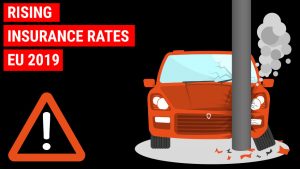Given the quarantine measures of the last 2 months we have seen a significant fleet mileage reduction for many companies. The question now surrounds insurance spend as risk reduces or as fleets become static.
This reduction in mileage has an immediate impact on some operational costs, the most visible being fuel cost but also the maintenance and tires components are influenced. When all your employees are driving less mileage, the risk on incidents will also decrease substantially.
What is the impact on insurance spend?
Companies which are traditionally insured, ie. fully covered with an ‘own contribution’ in case of an accident, will see a decrease in their accident contributions. But companies which are bearing a larger part of the risk themselves (eg. stoploss, self insured for casco cover) will have a much bigger profit than companies in the first situation were the insurer is benefiting most of the reduced risk.
Which actions can we take to pay for our real use or share profits of this windfall?
If you have vehicles which won’t be used for a longer period, you can consider suspending the insurance. For this you need an official approval of your insurer and you need to take into account certain obligations, like that you need to park them on a sealed parking lot and declare that these vehicles under no circumstances will be used.
If your insurer or lease company didn’t pro-actively contact you with a proposition you can reach out to them in order agree on a profit share on this reduction in risk. For these 2 months we are talking about +/- 17% of your premium payment. This can be higher if the vehicle use will remain low in the coming months. Consider next to the obvious covers MTPL and Casco also you legal aid, driver insurance and road assistance.
Steven Mertens

The profit share itself can be executed in many ways:
- It can be allocated a one-off refund on this years premium
- It can be part of next years premium which will operationally have less impact for the insurer
- It can even be an investment in prevention – this will guarantee an even longer benefit than only this insurance period
For a longer term benefit we advise companies to re-assess their risk position at the next renewal date and consider the medium to long-term impact of this crisis on your fleet. If we all will work more from home more, the mileage will structurally decrease compared to previous years and also, your fleet size might vary.
The re-assessment can be under the form of a change in risk position, whether an increased deductible on own damage or a change of the insurance structure, for instance a stop loss. It is also a good idea to include profit share in your insurance policy, in that way you are sure of benefiting financially when accident costs would fall.
When performing this exercise, it is always good practice to invest in the safety of your drivers. By doing so you will be able to perpetuate your improved loss statistic and take care of the safety of your employees on the road.
ANY QUESTIONS?
If your company would like guidance in making a business case for the optimal insurance set up, or if you want to discuss the advantages and content of a bespoke safety or prevention program, please reach out to us for a chat.



